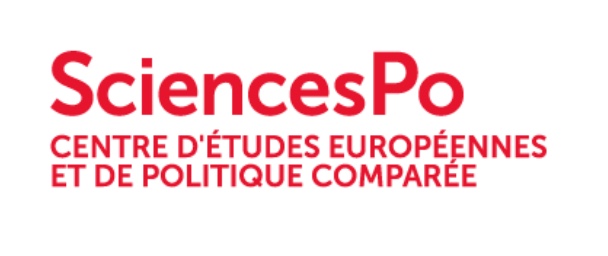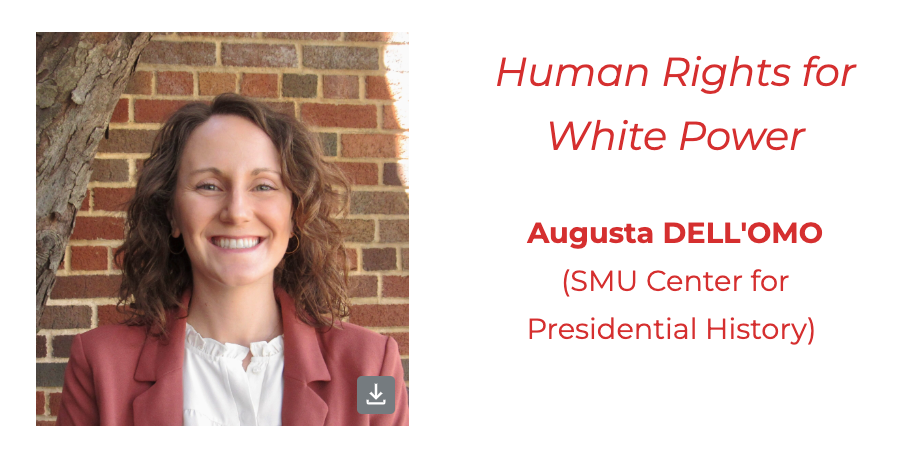Événement en présentiel
Une séance dans le cadre du séminaire conjoint CERI - CEE (Centre d'études européennes et de politique comparée) : Les sciences sociales en question : grandes controverses épistémologiques et méthodologiques.
Lieu : Salle Pierre Hassner (S1), 2e étage, 28 rue des Saints-Pères - 75007 Paris
Coordination scientifique: Samy Cohen, SciencesPo-CERI, Nonna Mayer, Sciences Po-CEE, CNRS
SAISON 32 | Le régime et le renseignement russes face à la guerre en Ukraine
Depuis 2014, la Russie nourrit un conflit militaire avec l’Ukraine qui a connu un tour nouveau en 2022 avec une invasion du territoire par le régime de Moscou. Conflit moderne en même temps qu’archaïque, la guerre en Ukraine agite les démocraties qui, au-delà de leurs alliances géopolitiques, se sentent menacées dans leur essence.
De même, conçu comme un conflit qui devait être éclair, l’engagement militaire produit des effets conséquents sur la Russie, notamment son système politique, médiatique et sécuritaire. Véritable contrepoint revendiqué des démocraties libérales (objet du séminaire Métis), il nous paraissait intéressant de s’intéresser aux voies, moyens et conséquences de ce conflit sur la Russie, son régime politique et ses services de renseignement.
18/03/2024 | 18:00-19:30
« Pensée et de culture stratégiques russes dans le cadre de la guerre en Ukraine », par Dimitri MINIC (dr), chercheur à l’IFRI
groupemetis@gmail.com
ATTENTION : Nombre de places limité
Event in Français
Événement en format hybride (présentiel / visio-conférence)
Lieu : Salle G009, 28 rue des Saints-Pères - 75007 Paris et également en ligne via zoom
L'événement est organisé par le groupe "Au-delà du postsoviétisme : dynamiques sociales et politiques" du CERI, en partenariat avec le séminaire "Autoritarisme, guerre et mobilisations dans l’espace postsoviétique" (CERCEC-EHESS).
Responsables scientifiques : Vera Ageeva, Anna Colin-Lebedev, Juliette Faure, Gilles Favarel-Garrigues, Olivier Ferrando, Denys Gorbach, Elisabeth Miljkovic, Renata Mustafina, Kathy Rousselet, Ioulia Shukan, Tatyana Shukan, Victor Violier
Si vous souhaitez suivre le séminaire via zoom, merci de vous inscrire en suivant le lien ci-dessous :
INSCRIPTIONS ZOOM
Si vous souhaitez suivre le séminaire en présentiel, merci de vous inscrire avec les liens ci-dessous :
mardi 9 Avril 2024, 17h00-19h00 (séance hybride)
"Le genre de la désindustrialisation : renouvellements historiques et perspectives"
Marion Henry (CHS - Université Panthéon-Sorbonne)
S'inscrire
Event in Français
Location:
Hybrid event (presential / zoom)
Venue : Room Pierre Hassner (S1), second floor, 28 rue des Saints-Pères 75007, Paris
Organised as part of the seminar Nuclear Knowledges
Speaker:
Juha Vuori, University of Turku
Discussants:
Nicola Leveringhaus,King’s College London
Cameron Hunter, University of Copenhagen
Abstract :
China acquired nuclear weapons in the 1960s, yet remained critical of deterrence as a policy. Indeed, the country used a variety of other terms to describe its nuclear weapon policies. In contemporary China, both its conventional and nuclear policies are described in terms of integrated deterrence. While China’s nuclear weapon policy remains unique, its deterrence imaginary has become more in line with those of other nuclear weapon states. Juha Vuori argues that the transformation of China's deterrence imaginary is closely connected to the normalization of nuclear weapons in China and that it is part of China’s identity politics.
La présentation sera donnée en anglais, cependant les questions en français seront également les bienvenues.
For more information visit sciencespo.fr/nk or follow us on Twitter @NKnowledges /
If you would like to be added to the mailing list for the Nuclear Knowledges seminar, please contact sterre.vanbuuren@sciencespo.fr
You will receive a confirmation email with the zoom link details once you have registered.
Scientifics Coordinators : Benoît Pelopidas, Sciences Po-CERI and Sterre van Buuren, Sciences Po-CERI
Déborah Laks
« Récits d'une formation à l'imaginaire : l'atelier Boltanski et ses réserves cachées »
Dans un vide sanitaire du Conservatoire National de Musique et de Danse, Christian Boltanski a dissimulé une œuvre qui doit rester secrète. Elle conserve une mémoire, réelle et fictionnelle, des élèves et des refusés du Conservatoire. Entourée de mystère, les conditions même de son existence interstitielle fournissent des clefs pour aborder l’enseignement artistique par son versant silencieux. À partir de l’étude de cette œuvre, on cherchera à élaborer les lignes de vie de l’imaginaire de l’art et de l’artiste, pensé comme matière historique.
Déborah Laks, docteure en histoire de l’art, est chargée de recherche au CNRS. Elle conduit actuellement un projet intitulé « Écoles de l’imaginaire. Histoire de l’enseignement artistique en France, 1968-1999 ». Elle co-dirige avec Emmanuel Guy un séminaire à l'Ecole des Beaux-arts intitulé "Pour une petite histoire. Théorie et pratique de l'anecdote en art et en histoire de l'art". Ses publications récentes incluent Des déchets pour mémoire. L’utilisation de matériaux de récupération par les nouveaux réalistes (1955-1975), 2018, la direction scientifique d’une anthologie des textes de Daniel Spoerri, Anecdotomania. Daniel Spoerri sur Daniel Spoerri, 2021, et la direction de Artistes enseignantes. La transmission au prisme du genre, 2023. Elle enseigne à Sciences Po.
Inscription
Event in Français
Location:
Cases-mémoire, images-mémoire(s) de la colonisation dans la bande dessinée
Vincent Marie, Université Montpellier 3
▸ S'inscrire
Event in Français
A Civilizing Relay: The Concept of the “Civilizing Mission” as Cultural Transfer in East-Central Europe, 1815-1919.
Elsbieta Kwiecinska (Université de Varsovie)
Inscription obligatoire
Event in Français
Location:
Événement en format hybride (présentiel / visio-conférence)
Lieu : Salle Pierre S1, 2e étage, 28 rue des Saints-Pères 75007 et également via zoom
Notes sur la radicalisation de la droite au Brésil
Dans le cadre de "Último jueves del OPALC" en partenariat avec l'association Abya Yala
Intervenants :
Santiago Basabe-Serrano, FLACSO Ecuador
Modérateur :
David Recondo, Sciences Po-CERI
Vous souhaitez suivre le séminaire via zoom, veuillez vous inscrire ci-dessous :
INSCRIPTIONS
Vous souhaitez suivre le séminaire en présentiel, veuillez vous inscrire avec les liens ci-dessous :
Responsables scientifiques : Olivier Dabène, Sciences Po-CERI, David Recondo, Sciences Po-CERI
A “Soft” Financialization of Social Policy? Calculating the Value of Social Investments in the United States and Finland
par Asa Maron, University of Haifa
Discutante : Anne-Laure Beaussier, CSO.
La séance du vendredi 26 avril se tient de 10h à 12h à la fois en présentiel à Sciences Po, en salle K.011 et en distanciel sur zoom. Si vous souhaitez y assister, merci de contacter Samia Ben.
Résumé :
The process of financialization introduces financial ideas, logics and practices to non-financial and non-economic fields, yet little is known about the formation of expectations in non-financial contexts, and the factors that influence the variation of expectations. This study explores the formation of expectations in the context of the "social investment state" by studying new methods that enable policy actors to value social investments. The rise of the social investment policy paradigm represents a shift in the rationale and justification of social spending: from the neoliberal dictum that social spending for services and programs is undesirable, toward reframing specific forms of social spending as investments that are expected to yield future returns. Policymakers' ability to invest in new social programs requires a capacity to value such investments. The paper examines the development of such valuation capacities in the context of experimenting with the Social Impact Bond (SIB) model. SIBs are financial contracts in which private capital is invested in innovative social programs with governments providing a return depending on the degree of success. The production of SIBs requires policymakers’ intensive engagement, including many hours of studying financial rationales and techniques, and experimenting with them. As platforms of intense learning SIBs have broad policy implications.
According to the valuation approach, the work of valuation entrepreneurs and the methodology they develop and apply determine what is of value. We follow valuation entrepreneurs and their accomplishments in two very different states: the United States and Finland. We ask how a financialized mode of valuation becomes re-embedded in the context of social policymaking? And what are the outcomes of this process in the United States and Finland? To answer these questions, the study analyzes textual sources (e.g. official documents, grey literature) as well as semi-structured interviews with key protagonists. We argue that the valuation of social investment represents a “soft” process of financialization leading to hybrid outcomes. In the context of financial diffusion, policy actors adopted a "Return on Investment" approach. Demonstrating non-financial professionals’ capacity to advance financialization from below, remote from financial markets, is an important contribution. And yet, the financialization process remains partial. The selective adoption of financial conventions demonstrates the path-dependent role non-financial fiscal state logics continue to play in states' calculations of social investment.
The study shows and explains variation in the valuation of social investment in the US and Finland by showing how different valuation methodologies were constructed and legitimized in each institutional context. In the US, the valuation of social investment developed with an over emphasis on statistic rigor, failing to value plausible returns in the long-term future. Moreover, the calculation of return on social investment was limited, considering only cost-savings for the Federal government, and thus ignoring and devaluing potential gains to state and local governments. In Finland, valuation methods included (and thus gave value to) the long-term future, and paid greater attention to intangible outcomes for actors other than central government. Although the calculated value of social investment remained committed to the state’s fiscal interests, the financialization of valuation went further in Finland at the expanse of neoliberal commitment to unburden the fiscal state which was prominent in the US.
Event in Anglais
Séance coordonnée par Léa Delmaire et Tiphaine Lours
Delphine Berdah (UR EST-Université Paris Saclay), "Santé publique et pharmacie vétérinaire après 1945, France - Royaume-Uni"
S'inscrire
Event in Français
Location:
A discussion between researchers and practitioners
Cyril Gérardon, directeur-adjoint de l’Ecole des Métiers de la diplomatie
Christian Lequesne, Sciences Po-CERI
Christian Lequesne, Sciences Po-CERI
Federica Bicchi, London School of Economics and Political Science
Rémi Meehan, Sciences Po-CERI
Scientific coordinators: Christian Lequesne and Rémi Meehan
Événement en présentiel
Lieu : Salle G009, rez-de-chaussée, 28 rue des Saints-Pères - 75007 Paris
Le séminaire "Postdocsem" vise à préparer les doctorant-es et jeunes chercheur-ses du CERI aux candidatures aux emplois académiques. Cette séance portera sur les candidatures au CNRS. Venez avec vos questions !
Intervenant.es :
Hugo Bouvard, maître de conférences en histoire et sociologie des États-Unis à l'Université Paris-Cité
Clémence Guimont, maîtresse de conférences en science politique à l'Université Paris 1 Panthéon Sorbonne et spécialiste des politiques environnementales et des politiques de biodiversité.
Responsables scientifiques : Camille Abescat, Hélène Combes, Lucas Puygrenier et Victor Violier
Un séminaire organisé dans le cadre du groupe de recherche PopAsiE
Un séminaire organisé dans le cadre du groupe de recherche PopAsiE
Julien Le Hoangan, Docteur de l'Université de Bourgogne Franche-Comté - “Histoires et mémoires de descendant.es d'origine vietnamienne : le travail de mémoire au prisme des théories postcoloniales.”
Responsables scientifiques : Cao Minh Ho (INED, CRIS Sciences Po Paris), Hélène Le Bail (CNRS, Sciences Po CERI, Institut Convergences Migrations) et Djamel Sellah (Centre Emile Durkheim, Sciences Po Bordeaux, Institut Convergences Migrations)
The end of the Cold War heralded a shift in the pro-apartheid movement’s organizing, as white supremacist actors drew on the global human rights movement to defend and reimagine white rule in South Africa. In a world without the existential threat of the Soviet Union, the pro-apartheid movement’s anticommunist rhetoric did not resonate as it had in the 1980s. As international concerns about human rights emerged in the 1990s, the pro- apartheid movement positioned itself as the premier defender of ethnic rights for white Afrikaners, and eventually, for South Africa’s Black Zulus, both under threat from the African National Congress. President F.W. de Klerk’s ascension to the helm of the apartheid state and his apartheid reforms enraged the South African far-right. In the aftermath of de Klerk’s February 2, 1990 unbanning the African National Congress, South African white paramilitary and political actors organized across the nation, insisting that the National Party no longer represented the interests of Afrikaners. The National Party and the African National Congress’s formal process of negotiating towards a democratic transition—the Convention for a Democratic South Africa galvanized far-right violence in South Africa, unleashing almost five years of national and local white terrorist action. Fearing a permanent shift in the balance of power in South Africa away from whites and toward the Black majority, South African far-right parties—backed by their U.S. counterparts—created their vision for white rule. Invoking the historic “Boer Republics”—self-governing white republics of the late 19th century—South African far-right organizations demanded the formation of new, segregated ethno-states under the guise of minority rights protections. However, not all factions of the pro-apartheid movement supported creating the Boer Republics. Far-right organizations across the United States and South Africa disagreed on the pro-apartheid movement’s tactics, strategies, and goals as it faced the reality of a National Party no longer serving exclusively white interests. The renewed focus on national and ethnic minority rights within democratic states provided the perfect opportunity for pro-apartheid activists to continue using human rights rhetoric to defend white rule.
In her presentation, titled Human Rights for White Power, Dell’Omo will explore the strategic repositioning of South Africa's pro-apartheid movement as defenders of minority rights, utilizing human rights discourse to defend white rule in the post-Cold War era.
Augusta Dell’Omo is a Postdoctoral Fellow at the Center for Presidential History at Southern Methodist University. She received her Ph.D. in History from the University of Texas at Austin in 2022. She specializes in U.S. foreign policy and race in international relations from the late Cold War to the present. Augusta's manuscript Saving Apartheid: White Supremacist Internationalism at the Cold War’s End analyzes the construction of a transnational network of white supremacist political, religious, and terroristic organizations seeking to stabilize white rule in South Africa while working against Congressional and Presidential sanctions policies from 1980 to 1994. Her work has been published in Cold War History and Diplomatic History. You can find her public-facing work on Washington Post, Inkstick Media, AJ+, and CNN International. Her research is supported by the Mellon Foundation, the American Council of Learned Societies, the Social Science Research Council, the Society for Historians of American Foreign Relations, the Harvard Kennedy School’s Belfer Center, and the Clements Center for National Security, among others.
REGISTRATION
Event in Anglais
Location:
Événement en présentiel
Une séance organisée dans le cadre du séminaire général de Relations Internationales et politiques planétaires du CERI
Lieu : Salle G009 (rez-de-chaussée), 28 rue des Saints-Pères 75007 Paris
Intervenant :
Quentin Couvreur, Sciences Po-CERI
Responsables scientifiques de l'événement : Thierry Balzacq, Stéphanie Balme, Ariel Colonomos, Carola Kloeck, Christian Lesquesne, Hugo Meijer, Karoline Postel-Vinay, Frédéric Ramel, Chiara Ruffa.
Événement en présentiel
Rural precarity and the politics of climate change discourse in Bolivia
Lieu : Salle S1, 2e étage, 28 rue des Saints-Pères - 75007 Paris
Cette séance est organisée dans le cadre du séminaire Extraire, échanger, empêcher. La mise en ressource des milieux.
Intervenant :
Thomas Perreault
Responsable scientifique : Sandrine Revet, Sciences Po-CERI
Organisation du séminaire : Pia Bailleul, Inés Calvo Valenzuela
Événement en présentiel
Une séance organisée dans le cadre du séminaire général de Relations Internationales et politiques planétaires du CERI
Multilateral Negotiations, Social Skills and WhatsApp
Lieu : Salle G009 (rez-de-chaussée), 28 rue des Saints-Pères 75007 Paris
Intervenant :
Jérémie Cornut, Simon Fraser University
Responsables scientifiques de l'événement : Thierry Balzacq, Stéphanie Balme, Ariel Colonomos, Carola Kloeck, Christian Lesquesne, Hugo Meijer, Karoline Postel-Vinay, Frédéric Ramel, Chiara Ruffa.


 22/04/2024
22/04/2024 12:30
12:30 







